I have heard about urban bee keeping but never knew that much about it. So when I heard about an opening event in honor of Propolis, the center for urban bee keeping, I figured that not only would my kids enjoy going, but it would be a unique opportunity to learn more about the subject.
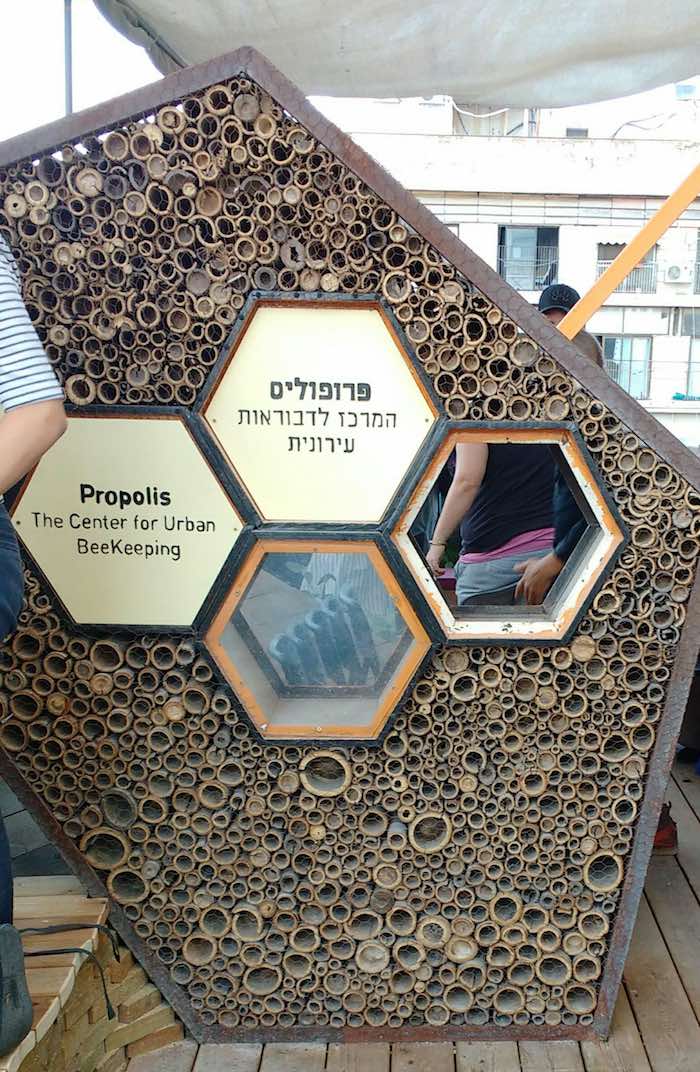
The center is one of the projects organized by the non-profit Muslala on their roof garden (nicknamed “Gag Eden”). They do all types of interesting programs and classes. One recent project I noticed, and a useful one around here, was a project to compost cat scat. Additionally, my kids have also enjoyed a workshop on painting with natural materials on their rooftop garden and they have workshops on carpentry and urban gardening as well as exhibits and other activities.
About Urban Bee Keeping
The center founder, Yossi Ud, explained that urban bee keeping is becoming more popular given the recent phenomena of disappearing bees. He spoke about various urban bee hives in the Tel Aviv and Jerusalem area and spoke about the courses Propolis offers to help people in setting up their own hives. In fact, the woman sitting next to me, had just finished the course they offered for Arabic speakers and told me about her own hive. She told me about how peaceful it was to sit near the hive and watch the bees. I could definitely imagine that. She was also translating the speeches into Arabic for other attendees, some of whom had participated in that course with her.
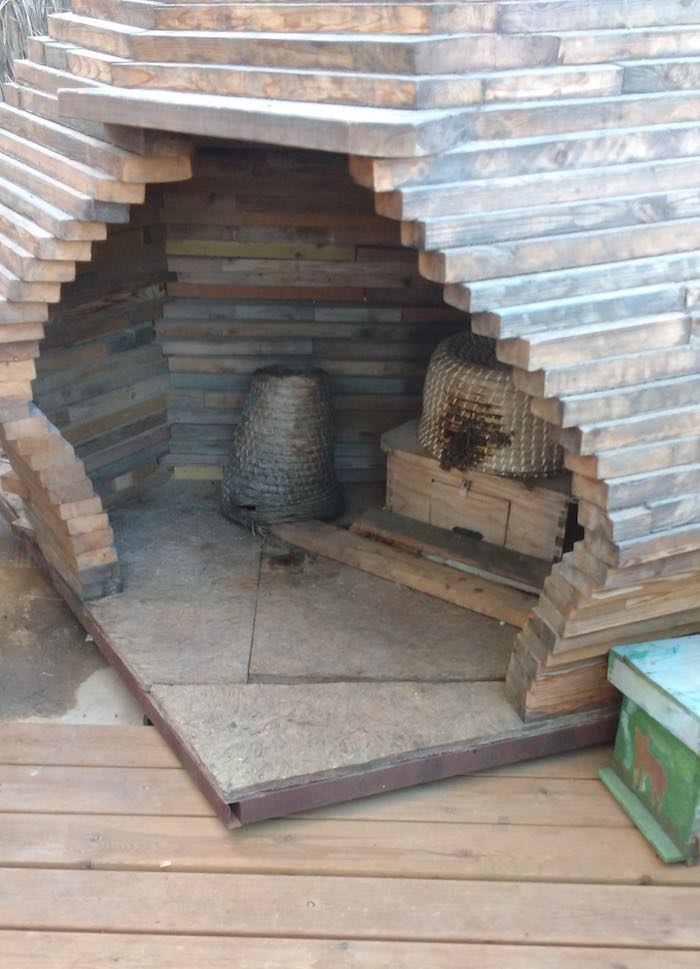
A Really Good Sport
My kids were fascinated by the presentation and peppered Yossi with questions after the ribbon cutting ceremony. He was a good sport, and after a question about petting the bees, showed them how to approach the bees and take note of whether the bees wanted them there or not. The bees did not want to be pet, but all my kids took turns sitting near the hive for quite a while. They noted the bees that had been pushed out of the hive, likely due to illness or age.
Yossi also pointed out to my kids the connection between shmita (the sabbatical year) and the life cycle of a bee hive. A queen bee lives about seven years. Each year, half of the hive goes off with a new queen to build a new hive. After seven years, the original hive dies off.
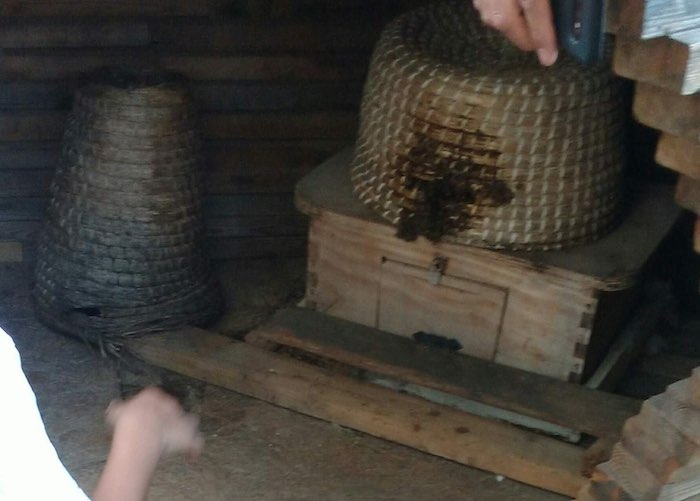
Amazing Enthusiasm
Everyone who attended was very enthusiastic and the site itself is beautiful. The manager of the site pointed out that all the construction at the hive, and the entire “Gag Eden”, are made out of recycled materials. For instance, the bamboo from the center entrance sign, is from an exhibit that took place at the Israel museum. A walk in structure near the hive, came from the Israeli version of the burning man festival. The hive is made of recycled wood.
The flowers planted in the surrounding area were all to encourage bees in honey making. Sitting in this little urban utopia and looking over the sides of the building is a bit surreal. You are looking over urban Machane Yehuda, with all the construction cranes up and around.
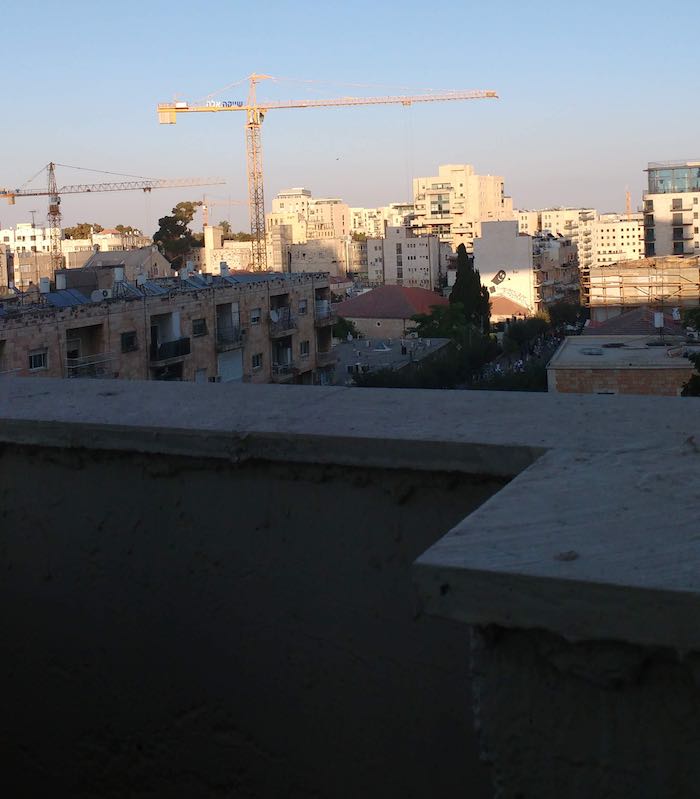
Something New
Something I learned in the session was that bees are sensitive to the smell of perfume and deodorant. It acts for them like a pesticide. It was also interesting to hear the cross cultural perspectives on the use of honey. In all really interesting and fun. My kids asked about setting up our own hive. I am not sure we are ready yet for urban bee keeping but I am glad they are enthusiastic. For now, they’ll have to be happy with our Rosh Hashanah cupcake wrappers. They have bees on there.
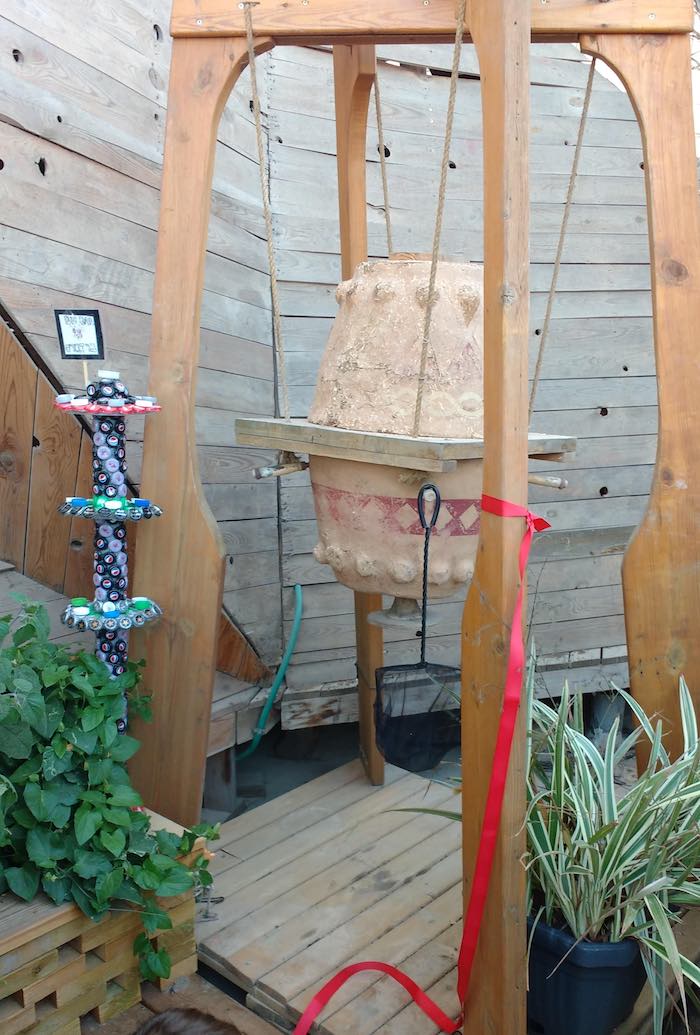

Resources
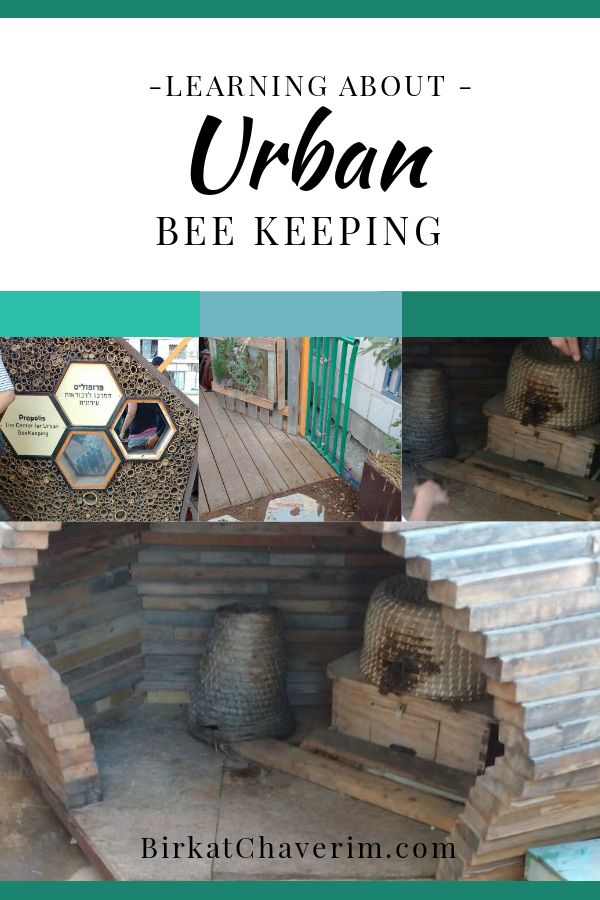

Add a Comment